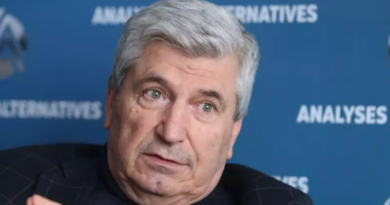The Impact of Sanctions Against Gazprombank on Russian gas transit via Bulgaria
Today represents a pivotal moment in the governance approaches of former Prime Minister Borissov and President Radev. Their chief energy official, Vladimir Malinov, admitted that if Gazexport fails to resolve its transit payment obligations, Russian gas flows to Serbia—and subsequently to Hungary—will cease. For years, as an expert in political risk management with a focus on Russian geopolitics, I have warned successive Bulgarian administrations of the dangers inherent in long-term energy projects with Russia. Moscow and President Putin have consistently proven to be unpredictable partners, often delivering destabilizing outcomes that their counterparts cannot easily mitigate.
Governance Failures and Historical Context
The governance failures leading to the current crisis were particularly evident during the development of the Turk Stream project. After Russia’s annexation of Crimea, the geopolitical risk of deepening economic ties with Moscow escalated sharply. Despite this, Bulgaria pressed forward, often prioritizing political expediency over strategic foresight. While Borissov spoke of “sailboats in the Black Sea” and Radev debated “whose Crimea should be,” critical energy decisions were made without robust risk analysis or professional management. This lack of preparation has left Bulgaria increasingly dependent on Russian gas transit revenues.
Financial and Legal Challenges
Malinov was warned of the extreme vulnerability posed by Bulgartransgaz’s reliance on Russian gas transit, which constitutes over 80% of its revenue—approximately 70% directly tied to Gazexport contracts. Adding to this fragility is the substantial debt accrued to finance the Turk Stream project. The looming December 20 deadline to negotiate alternative payment methods with Gazexport and other involved companies only compounds the issue. These companies must pay Gazexport first for natural gas, then remit transit fees—a process that risks them violating U.S. sanctions imposed on Gazprombank.
Limited Options for Resolution
Efforts to replicate Hungary’s strategy—where MOL assumed ownership of Russian crude at the Russian-Ukrainian border to circumvent sanctions—are unfeasible. The Turk Stream project operates under a long-term transit services agreement between Bulgartransgaz and Gazexport, which cannot simply be transferred to Hungarian or Serbian firms.
Broader Implications
This crisis reveals Bulgartransgaz’s flawed dependence on a single revenue source tied to Russia, a politically volatile partner. While Malinov executes policies, ultimate accountability rests with political figures like Borissov, Peevski, and Radev, who endorsed this model. Their justification—that Turk Stream was of “national interest” to prevent Bulgaria’s exclusion from regional energy networks—is increasingly untenable.
Missed Opportunities for Diversification
Could Serbia and Hungary have diversified their energy supplies after Russia’s invasion of Ukraine in 2022? Absolutely. Yet, their deliberate inaction has perpetuated the region’s energy dependence and vulnerability.
Scenarios for the Future
1. U.S. Sanction Adjustments
The U.S. Office of Foreign Assets Control (OFAC) has indicated that sanctions against Gazprombank primarily target payments for military and dual-use goods, not energy transactions. Temporary exemptions for natural gas and transit fees could be negotiated, though minister Malinov has not disclosed whether such discussions are underway.
2. Political Commitment from Radev, Borissov, and Peevski
The reputational stakes for Bulgaria’s leadership are immense. Failing to address the crisis could result in severe economic repercussions and widespread public criticism. This pressure is likely to prompt direct involvement from top officials to find a resolution. Moreover, Bulgaria risks facing backlash not only domestically but also regionally. In a scenario similar to the unilaterally imposed tax on Russian gas entering Bulgaria by former Finance Minister Assen Vassilev, both Serbia and Hungary would likely direct their ire toward Sofia and Bulgartransgaz rather than Washington. Leaders such as Viktor Orbán and Aleksandar Vučić would be quick to intensify pressure on Bulgaria, deflecting blame away from the U.S. and amplifying regional tensions.
3. Short-Term Solutions vs. Long-Term Challenges
Even if a temporary resolution is achieved by December 20, the fundamental issue of overreliance on Russian gas transit revenues remains. Comprehensive efforts to diversify Bulgartransgaz’s customer base are essential for ensuring the company’s long-term stability and Bulgaria’s energy security.
This crisis underscores the perils of aligning national energy strategies too closely with Russian interests. It serves as a stark reminder of the urgent need for Bulgaria—and the broader region—to adopt more sustainable and diversified energy policies, capable of weathering geopolitical disruptions.
Ilian Vassilev




